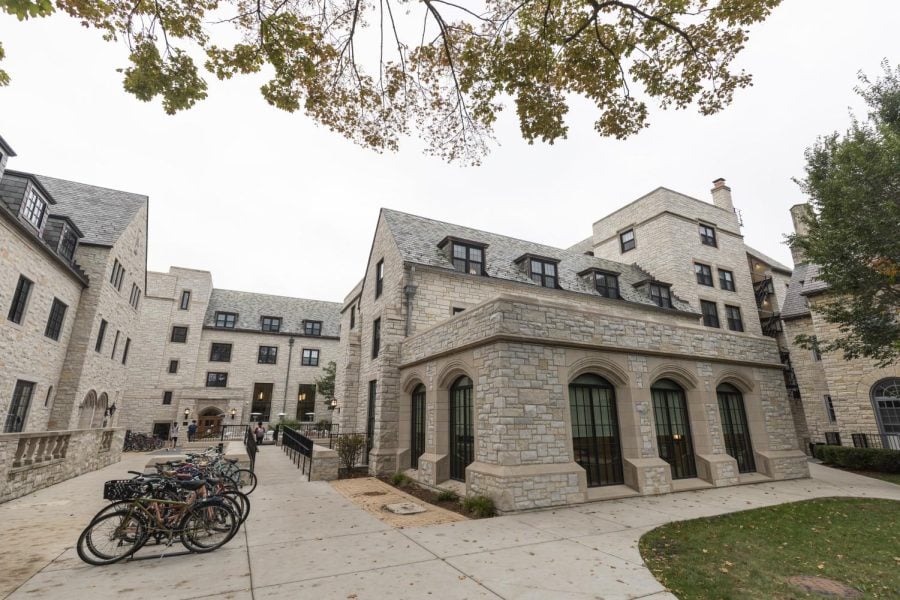Area councils hope to create smaller communities for students across campus
Daily file photo by Joshua Hoffman
Willard Residential College. Area councils are aiming to encourage students to create programming unique to residential areas and foster localized communities.
May 10, 2022
Starting in fall 2022, residential areas will have a brand new component: area councils, which are the latest addition to the residential framework, announced in 2018.
The system gives students a chance to participate directly in creating community-building events in four areas: North, Northeast, South and Southwest. All students who live on campus live in one of the regions.
Amanda Mueller, interim director for residential academic initiatives, said the area system always planned to involve student governance.
“The areas launched, and we worked on getting them off the ground,” she said. “As we’ve gotten them to a space where students are aware of them, we were ready for the next step.”
Mueller said area councils won’t change the areas themselves that much, but leadership will be different.
Residential directors and faculty-in-residence were in charge of much of the early programming of areas, which Mueller said were meant to build small communities across campus. Now, that responsibility will lie in students’ hands.
Weinberg Prof. Elizabeth Lenaghan, faculty-in-residence for the North Area, said students will now take on the event-planning duties she previously had.
“We’re hoping to use the addition of student councils for a way for students to do some of the more large-scale programming,” she said.
Lenaghan added she will still be involved in programming but will be solely focused on smaller and more intimate events.
Weinberg freshman and newly elected North Area President Ali Lee said she heard about area councils through a friend. She said she and a few of her friends thought it would be something enjoyable to do together and decided to run for positions.
“Because it was so new, it felt like you could make it what you want,” Lee said. “So (running) would just be a fun thing for us to do.”
Lee said another draw to running was housing priority for next year. Members of area councils are given low numbers to guarantee they live in the area they represent.
Psychology Prof. Ben Gorvine, faculty-in-residence for the Southwest Area, said low priority numbers are a good incentive. However, he said residential area teams need to do more to generate student interest in joining area councils. Only the North Area had competitive elections this year for area council, Lenaghan said.
“I know from talking to students that the idea of a residential area still is not a primary thing that they identify in their mind as part of their housing experience,” Gorvine said. “It’s taking time for that notion to actually hold.”
The goal of area councils is for leaders to tailor programming to each area, Mueller said. She said she hopes this will build a unique identity within each housing community.
Lee said she and her council colleagues want to achieve this objective by expanding on programming they already enjoy, especially events involving food, like the Northeast Area’s Snackchat. She also said they want to make area merchandise more prominent and accessible.
If area councils can form traditions and bonds, Mueller said, she will view the new leadership as a success.
“It really is intended to focus on those social connections,” Mueller said. “(To) bring students together and help them connect across the areas.”
Email: davisgiangiulio2025@u.northwestern.edu
Twitter: @GiangiulioDavis
Related Stories:
—Students find community through residential colleges
—Students question new residential neighborhood model
—Welcome to Hotel Hinman: Students in Quarantine and Isolation share experiences



